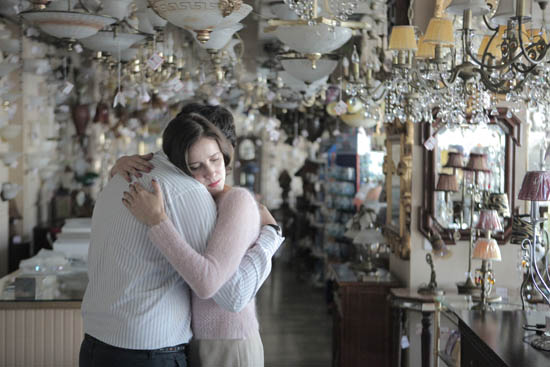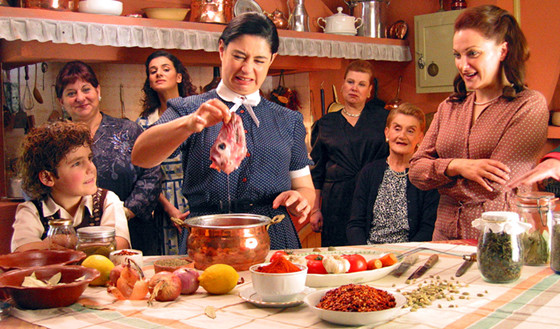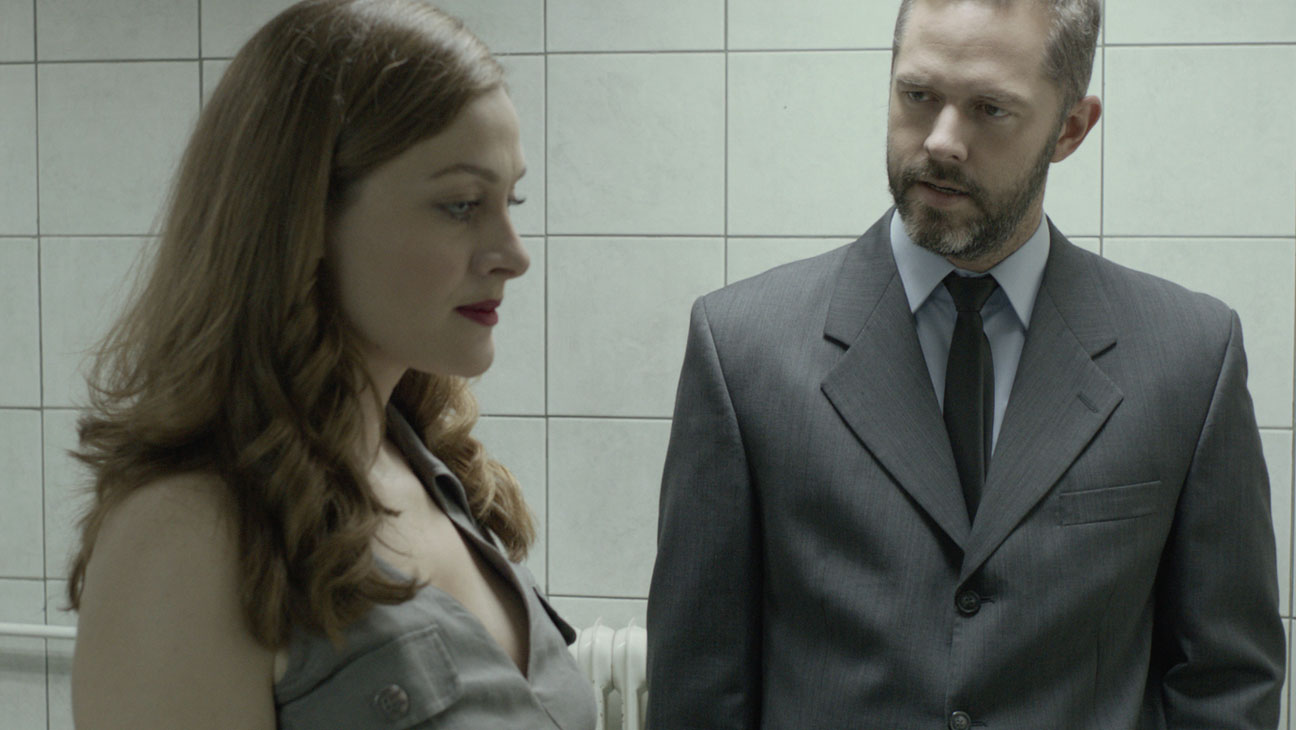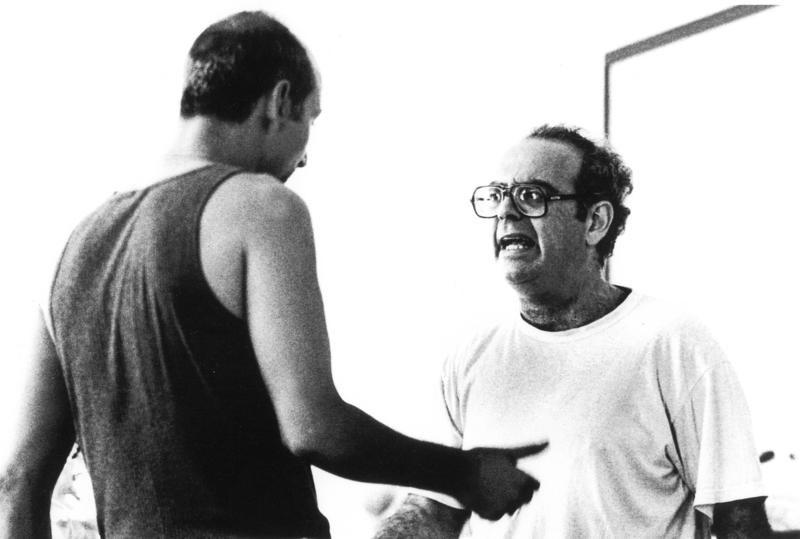In the beginning of the 21st century, Greece was blooming. The economy was in a new era and Greece joined the European Union. In 2004, the Olympic Games were successfully held in Athens and the national football team of Greece won the Euro Cup. However, in 2008, everything changed.
The financial crisis roughly hit the weak Greek economy and emergency measures were taken in order to prevent the country from collapsing. The crisis is continuing today in Greece, but a wave of new directors have come out of the ashes, and almost with zero means, created something unique.
Despite the difficulties, directors like Giorgos Lanthimos and Athina Rachel Tsangari have created movies for a wider audience and gave Greek cinema the personal character it was lacking. The new style is called “Greek Weird Wave” although it would be unfair to put all the movies under the same name because they are different from each other, despite their similarities.
1. Dogtooth (2009)
Giorgos Lanthimos’ movie is an allegory for the isolation of a family living in a detached house in the middle of nowhere. The father, the mother and the three children are living isolated in a big house outside of a city and it could be anywhere. The father and the mother have invented their own vocabulary in order to keep their children in the dark.
For example, the children believe that the planes flying over the house are toys and the zombies are little yellow flowers. They are prohibited from going outside of the house and the only person they see except from their mother and father is Christina, a security guard who works in the father’s factory. She is hired so she can satisfy the “sexual needs” of the young male teenager.
Although there are some controversial scenes that some people found hard to watch, “Dogtooth” was a hit and a major success that made Lanthimos known worldwide. It won the Un Certain Regard award at the Cannes Film Festival, and it was nominated for Best Foreign Language Film at the Oscars.
More importantly, it has created a whole new genre of movies in Greece, the so called “Greek Weird Wave” where the actors play kind of detached roles and the script follows certain rules that were not used otherwise.
2. Alps (2011)
Lanthimos’ next film was “Alps”, and he uses similar cinematography as he used in “Dogtooth”. His main partner and friend, Efthymis Filippou, wrote the screenplay. A nurse, a paramedic, a rhythmic gymnast and her coach have formed a team, with a goal to substitute dead people. They are hired by the relatives and friends of the dead.
The team is called “Alps” and the leader of the team is called “Mont Blanc” (Aris Servetalis). There are certain strict rules that need to be followed by the team. The leader founded these rules and he is a strict disciplinarian about following them. Everything goes bad when the nurse starts to deviate from the program.
The film did not get the attention that “Dogtooth” received; although it is a classic “Greek Weird Wave” movie, it did not succeed as the previous movie of Lanthimos. Nevertheless, you could see that its acting is very original and something new, not only for the Greek, but also for worldwide standards.
3. A Touch of Spice (2003)
Fanis Iakovidis (George Corraface) is a charming 40-year-old professor of astrophysics who also happens to be very talented at cooking. On the occasion of the upcoming visit of his beloved grandfather from Constantinople (Istanbul), who he hasn’t seen for many years, he is filled with childhood memories.
His grandpa’s sudden illness changes his plans, and he finally decides to go to Istanbul to meet him and to remember all the nice years he had there with his parents. There are happy memories, like the first love of his life, Saime, and bad ones, like those of their persecution and deportation.
A Touch of Spice is an experiential film from director and screenwriter Tassos Boulmetis, who as an Istanbul descent himself, and it deals with the persecution of the Greeks suffered from the Turkish authorities in Istanbul in 1964.
The film, which won eight awards at the Thessaloniki Film Festival, tries to depict with composure a specific historical period and shed some light to some aspects of the conflicts between the Greeks and the Turks. It also shows the adjustment problems faced by the refugees, mainly the bitterness of those people who the Turks expelled as Greeks and the Greeks saw as Turks.
4. Miss Violence (2013)
The film, which is based on a true, shocking story that happened in Germany, starts with a child’s party, where we see a big Greek family celebrating the birthday of an 11-year-old girl. Suddenly the girl, without making a fuss, goes out on the balcony, climbs the railing, looks at the camera smiling and then jumps into the void.
After the incident, the police are interrogating the father and we see, as the movie goes on, the way that this family functions in everyday life. On the surface, it looks good but someone could understand that there is a deep dark secret, which is revealed in a shocking way.
Like “Dogtooth”, the film deals with a controversial issue which some viewers found difficult to swallow. Many people saw similarities between the films, but the truth is that “Miss Violence” is narrated in a different way.
The film won several awards, including the one for the Best Director, for Alexandros Avranas, and the one for the Best Actor, for the fantastic Themis Panou, at the Venice Film Festival. It shows the hypocrisy not only of the Greek modern family but of all the families in the world that are afraid to deal with similar problems and prefer to hide them under the rug.
5. Strella (2009)
Giorgos, a 48-year-old man, gets out of prison after having served 15 years for a murder that he committed in his village when he was younger. He spends his first night of freedom in a cheap hotel in Athens, where he meets a young transsexual prostitute, who is called Strella and who seems to be interested in him.
We see their relationship developing and become more intimate as the movie goes on. From the beginning, there is chemistry between the two characters and they fall in love with a very natural way. Giorgos goes back to his village in order to sell his old house but there he finds out something that changes everything.
Most of the actors and actresses in the film are amateurs, but they give 100 percent of their potential, especially the protagonist Strella (Mina Orfanou), who is a real transsexual and was praised for her performance. She won the Best Actress award at the Hellenic Greek Academy Awards in 2010. Although the theme of the film is difficult, the director does a fine job and he does not succumb to easy solutions and clichés.
6. Τhe Enemy Within (2013)
Kostas (Manolis Mavromatakis) is an owner of a flower shop in Athens. He leads an ordinary life, with his wife, his daughter and his son. He was raised with the ideas of the left and he tries to pass that mentality on to his children. Their life is disrupted suddenly when some men break into their house in order to steal from them.
The physical and psychological violence that Kostas suffers changes him completely. He gets in contact with a man who lives across of his house and has some information about the intruders. This man seems to carry ideas that Kostas hates, and is filled with hate and racism for people. He forgets his ideals and becomes a vigilante for the sake of his family, but mostly for his own salvation.
In the midst of a financial and social crisis, director Giorgos Tsemberopoulos deals with an unfortunate contemporary subject in Greece: the violence people live in their everyday lives and the rise of the far right ideology in many cities and villages of Greece. The script is carefully written and Manolis Mavromatakis gives an electrifying performance. He is like a volcano that is ready to burst at any moment.
7. Matchbox (2002)
Dimitris (Errikos Litsis) is a middle-aged man who lives with his family in Athens. We see their everyday life as it turns into a battlefield. They attack each other almost without any provocation and the amount of psychological and psychical violence escalates without an end.
Whose fault is it? Is it the father’s fault, because he is held responsible for this dysfunctional family? Everyone thinks they are protected behind the four walls of the apartment. But their protection is artificial and as the masks go off, an unexpected confession occurs and this is the beginning of the total disaster.
Giannis Oikonomides created a movie like no other in the history of Greek cinema. He deals with painful issues like racism, verbal abuse and sexism, in a period when everything seemed to work well in Greece.
The economy was flourishing and the next year the Olympics were going to happen in Athens. However, that was happening only on the surface. On a deeper level, the Greek family was in a crisis but was too afraid to look herself in the mirror. The end does not give any easy solutions, because in such a complicated issue, there simply aren’t.







